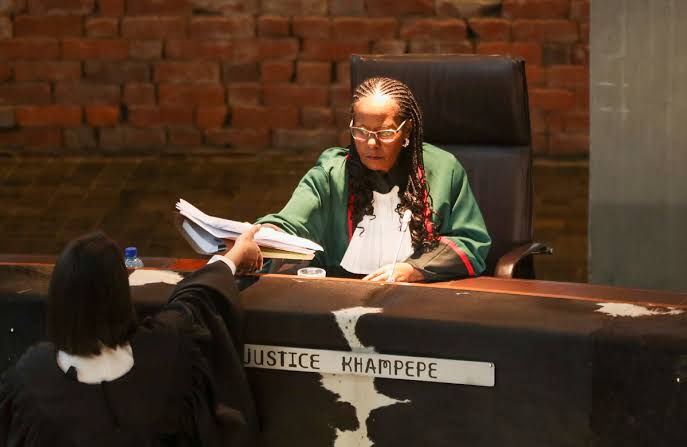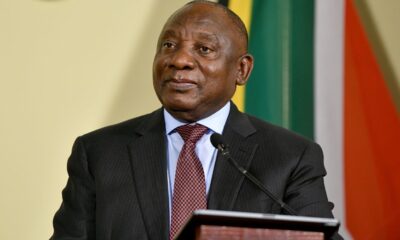News
Justice Khampepe vows compassionate approach in apartheid-era crimes inquiry

Justice Khampepe vows compassionate approach in apartheid-era crimes inquiry
Decades after South Africa’s transition to democracy, the wounds of apartheid still run deep for families waiting for justice. Now, Justice Sisi Khampepe, chair of the new Judicial Commission of Inquiry into apartheid-era crimes, has promised that her team will take a “sympathetic and non-adversarial” approach as it begins its work.
The commission, established by President Cyril Ramaphosa in May, is tasked with probing attempts to block prosecutions of cases left unresolved by the Truth and Reconciliation Commission (TRC). Many of these cases involve perpetrators who either refused to come forward during the TRC hearings or failed to make full disclosures about their roles in human rights violations.
A commission rooted in healing
Speaking at a media briefing at the Hector Petersen Memorial in Orlando West, Soweto a site that carries the memory of the 1976 youth uprisings Justice Khampepe underlined that the goal was not vengeance, but truth and closure.
“We do not want to make this inquiry adversarial,” she said. “Families deserve answers, perpetrators need to disclose fully, and justice must finally serve those who were denied it.”
The commission includes retired Judge President Frans Diale Kgomo and Advocate Andrea Gabriel SC, and has been given a six-month mandate to investigate crimes and delays from 2003 to the present.
Families still waiting for answers
For many victims’ families, the announcement has sparked cautious hope. Mpolokeng Madibe, who was arrested as a teenager in the 1970s, said she has waited her whole adult life for answers.
“Families want closure and want to bury their loved ones,” she explained. “Even though perpetrators can never bring our loved ones back, a full disclosure, an apology, and even repatriation of remains can give us some peace.”
Her words echo the experiences of many who participated in TRC hearings but never saw promised prosecutions materialise.
Ramaphosa: “All South Africans deserve closure”
When signing the proclamation earlier this year, President Ramaphosa acknowledged that delays in prosecuting apartheid-era crimes had caused “great anguish and frustration” for families.
“For many years, there have been allegations of interference in these cases,” he said. “A commission of inquiry with broad and comprehensive terms of reference is an opportunity to establish the truth and provide guidance on further action.”
Why this matters today
More than 30 years into democracy, the shadow of apartheid-era atrocities still lingers. For younger South Africans, this commission may serve as a reminder that justice delayed remains justice denied. For older generations, it could finally unlock the closure they’ve been demanding since the TRC ended in 2003.
Justice Khampepe’s promise of a compassionate process suggests this inquiry will be less about adversarial courtroom battles and more about truth-telling, healing, and national reckoning. Whether it succeeds where previous attempts have faltered remains to be seen but for families still waiting, it is another chance to confront the ghosts of the past.
{Source: IOL}
Follow Joburg ETC on Facebook, Twitter , TikTok and Instagram
For more News in Johannesburg, visit joburgetc.com



























